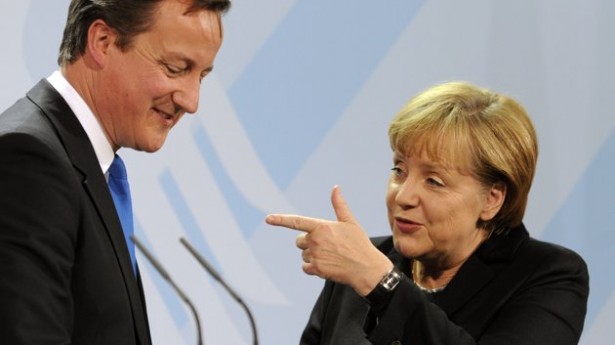David Cameron and his allies have just agreed a historic cut to the EU’s long-term budget (as I predicted yesterday).
But forget the figures and maths for one second – after all the cut to the EU budget is only the equivalent of 0.0003 per cent of EU 2011 GNI – the most interesting part of this summit is political:
- The UK, the Netherlands, Sweden, Denmark and Germany, formed an alliance around a real-terms cut, outflanking France and Italy (though both countries are likely to get their own sweeteners in the end). The UK Government should be given credit for pulling this one off – it isn’t permanently isolated as some commentators would have us believe.
- Contrary to reports in the French media yesterday, François Hollande and Angela Merkel did not reach a common position going into the talks – the only time I can remember a major deal being struck without this happening. This was another step towards a more self-confident Germany, which doesn’t simply write blank cheques – and another spanner in the Franco-German engine.
- As expected, Angela Merkel acted as the lynchpin, conducting smaller meetings with Cameron and the ‘Northern bloc’ on the one hand, and Hollande and the ‘Southern bloc’ on the other.
But, when the dust has settled, there may be some valuable political lessons for the UK to consider.
First, its two staunchest allies in these talks, Sweden and the Netherlands, deliberately positioned themselves beyond the UK , to avoid London being seen as the outlier. The UK should show some gratitude and sensitivity to this – particularly as the two countries may see their rebates cut.
Second, Paris might want to get even down the road, including in UK-EU negotiations. This shouldn’t be over-stated though. Anglo-Franco relations are bound to be at their most tense during budget talks, since the rebate and CAP are directly linked and political red-lines for both.
But, finally, it is the role played by Merkel that is by the far the most significant. If anyone was in any doubt, it should now be abundantly clear that as Germany goes, so goes Europe. Hollande missing the meeting between Merkel and Cameron, for example, did cost him.
There will be a temptation in Westminster to see this as a green light for the UK government to go all in – and that Cameron’s strategy to negotiate a new deal in Europe followed by a referendum will get the unwavering blessing of the German Chancellor. But this would be premature.
Both at home and abroad, Angela Merkel thrives on her role as a broker, constantly playing different alternatives against each other depending on the issue at hand. This time Merkel tended towards the Northern bloc, in large part because she agreed with them, and because the UK had marshalled a group of allies, Germany could still lay claim to the political centre of gravity. Looking at it from Germany, of course, the UK provided a valuable counterweight which meant Merkel could come at as the dealmaker and get more or less what she wanted. This is also why she needs the UK in the EU.
But the lesson for David Cameron has to be this: win enough support for your position among like-minded member states and Germany will back you.

